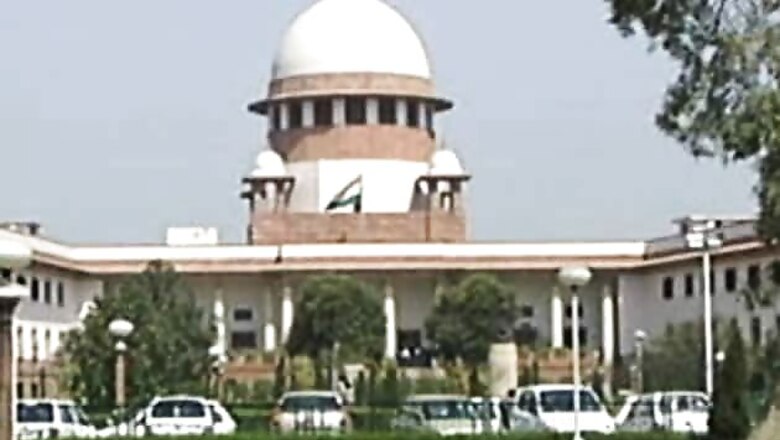
views
New Delhi: In an important order relating to Army personnel engaged in counter insurgency operations, the Supreme Court on Tuesday ruled that those involved in encounter killings cannot be prosecuted without prior sanction of the Central Government as they enjoy immunity under AFSPA.
A bench of justices BS Chauhan and Swatanter Kumar, however, said if the accused Army officials are to be tried under the court martial proceedings then no such sanction was required.
The bench granted the option to the Army authorities to try the officers in Pathribal and Saikhowa encounter killings under court martial proceedings or alternatively subject them to trial in criminal courts.
The court gave this ruling while rejecting CBI's contention and upholding the appeal filed by Army officers challenging their prosecution over "fake" encounters in Pathribal, Jammu and Kashmir, 12 years ago in which 7 persons were killed.
The verdict also covered another encounter in 1994 in Saikhowa Reserve Forest in Assam's Tinsukhia District in which five persons were killed.
The court said the immunity granted to security personnel under the Armed Forces Special Powers Act (AFSPA) and Section 197 Cr PC was to ensure that they were not subjected to unnecessary harassment or prosecution.
"It is also to be kept in mind that the cognizance is taken of the offence and not of the offender. The sanction of the appropriate authority is necessary to protect a public servant from unnecessary harassment or prosecution.
"Such a protection is necessary as an assurance to an honest and sincere officer to perform his public duty honestly and to the best of his ability. The threat of prosecution demoralises the honest officer,"Justice Chauhan writing the judgement said.
The apex court however, said that performance of public duty under colour of duty cannot be camouflaged to commit a crime.
"The public duty may provide such a public servant an opportunity to commit crime and such issue is required to be examined by the sanctioning authority or by the court.
"It is quite possible that the official capacity may enable the public servant to fabricate the record or mis-appropriate public funds etc.
"Such activities definitely cannot be integrally connected or inseparably inter-linked with the crime committed in the course of the same transaction," the bench said.




















Comments
0 comment